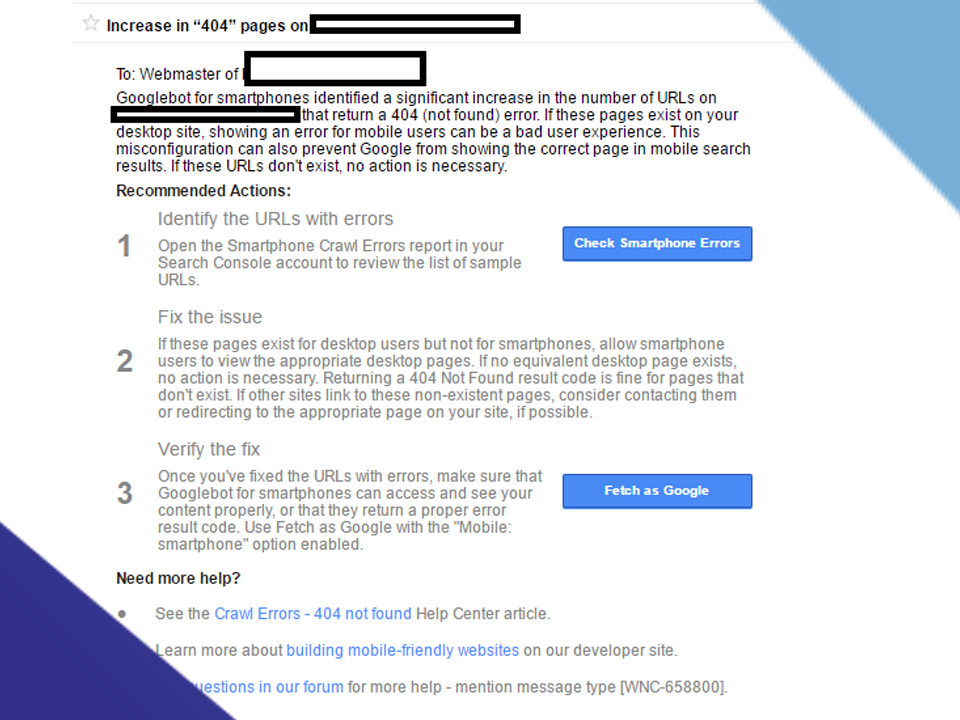
Last year, I took on a client whose previous web designer had gotten her into quite the predicament: her website was hacked and used as a link farm due not being maintained for over 6 years! She was paying the old web designer to maintain her website and to keep an eye on it, but like many of the shady folks in the online business industry, he took the money and didn’t lift a finger.
The hacker had injected hundreds of thousands of spam pages into her website, which Google had indexed for some reason. What does this have to do with SEO and 404 errors, you ask? Well you see, once I cleaned up the website and rebuilt it from the ground up, I received a message in my client’s Google Search Console account about an “Increase in ‘404’ pages on (insert URL here)”. So, despite resolving the “hacked site penalty”, I now had to deal with hundreds of thousands of 404 errors… Or so you would think.
Let me tell you something, I did nothing about them at all. That’s right, I didn’t 301 redirect them because, quite frankly, they weren’t worth the effort.
“But what about penalties and ranking issues?”
Allow me to explain…
Can 404 Errors Harm Your Rankings?
Yes and no; there are some cases where 404 errors harm your rankings and other cases where they don’t.
Yes
Back when I was restructuring the URLs and slugs for this website, I ran into a little mishap where some of my 301 redirects from the old URLs to the new URLs didn’t work. This resulted in
So obviously, if a page that’s ranking well all of the sudden just “disappears” from your website, Google will remove the article from the results as a response, thus affecting your rankings for that individual page.
No
It was a year ago that I fixed my client’s site. While I was only paid to re-build and maintain the website, I did do a bit of SEO & CRO on it with my client’s consent to see if ignoring the 404 errors would cause the rankings to drop further. While my client did receive a warning in their Google Search Console account, their rankings were not impacted in any way and the site’s rankings have only improved for the targeted keywords.
Recently, I also performed a similar experiment a month ago on this very website as mentioned in my article titled, “Can Removing Pages Improve Search Engine Rankings?“. The results so far have demonstrated that the increase in 404 errors on this site didn’t impact my rankings at all.
When You Should & Shouldn’t Worry About 404 Errors
When You Shouldn’t
- When The 404 errors point to URLs that were mis-typed. If this happens once, just ignore it and move on.
- When the 404 errors point to pages that were automatically-generated by hackers. As soon as these pages are deindexed from Google and, assuming there aren’t any links pointing to them around the web, Google probably won’t even crawl these non-existent pages,
When You Should
- When the 404 errors point to URLs that did exist. This means that something happened to that page; either it’s difficult for web crawlers to access or you accidentally deleted it.
- My Experience Accepting Crypto Payments For The First Time - April 25, 2025
- Are Forums Dying? A Look Into Forums As A Whole - April 22, 2025
- Are The “Rank 1 In Google For Any Keyword” Services A Scam? - April 1, 2025
